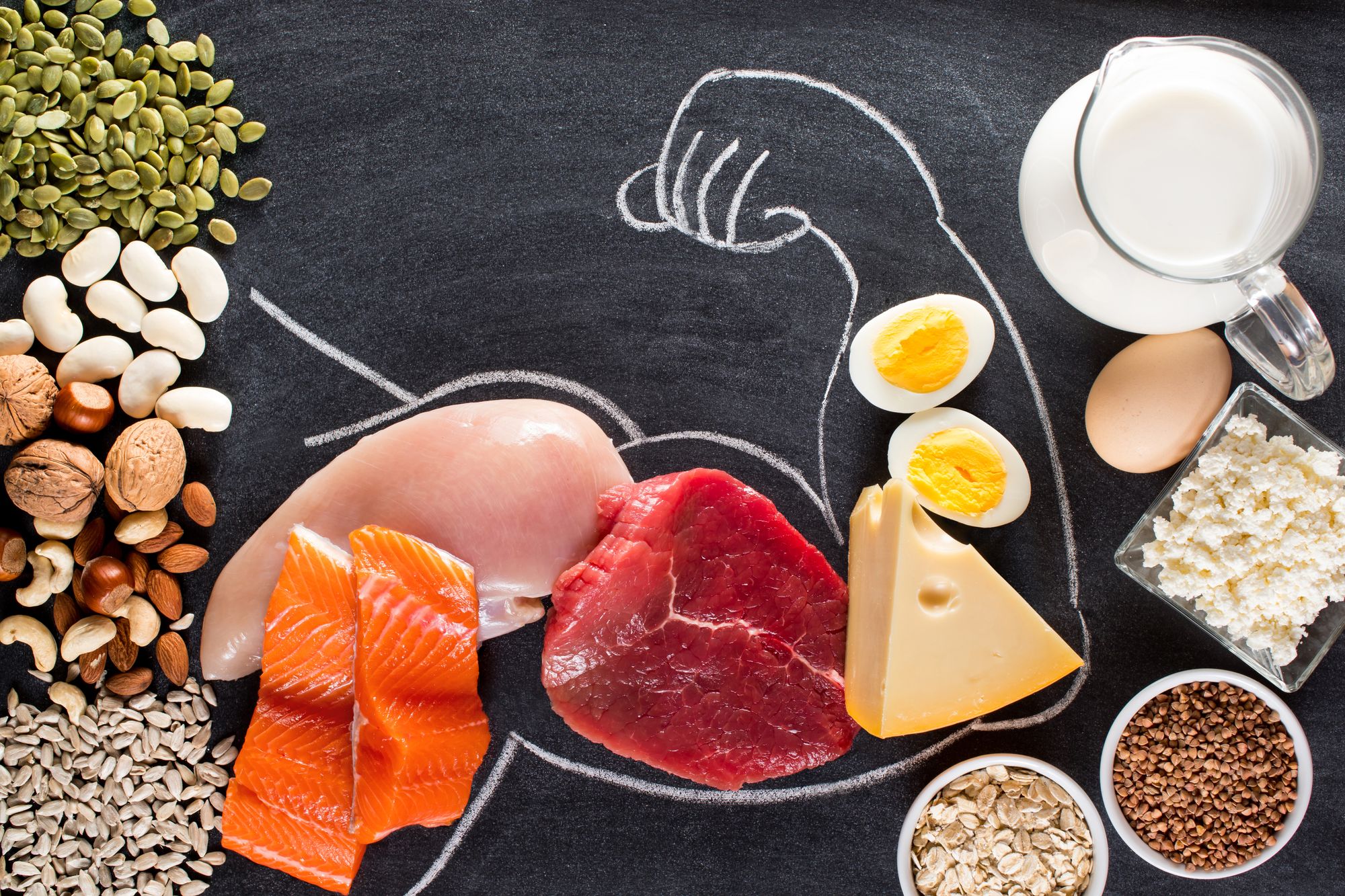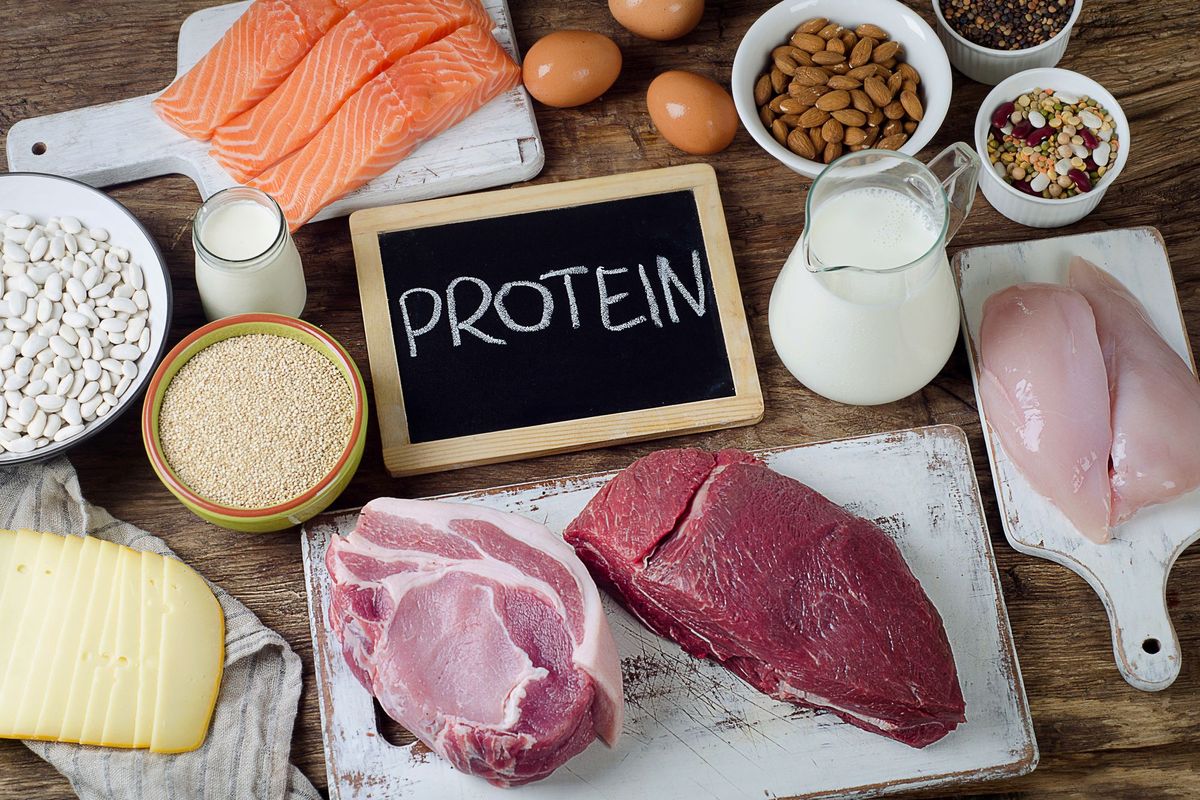Protein often takes center stage in the quest for weight loss, but determining the right amount can be perplexing amid the abundance of nutritional information and diet trends. In this article, we aim to demystify the role of protein in weight loss.
Protein, one of the three fundamental macronutrients alongside carbohydrates and fats, is a critical component of a healthy diet, constituting 20 percent of the body and being present in every cell. This nutritional powerhouse not only supports muscle growth but also prolongs satiety and revs up metabolism. However, it's important to strike a balance; excessive protein consumption can be counterproductive. To provide clarity on this matter, we consulted Trista Best, RD, a registered dietitian from Balance One Supplements, who will elucidate the ideal protein intake for weight loss and recommend reliable protein sources.
Whether you prefer chicken, legumes, or protein-rich vegetables, this article will guide you in establishing realistic protein consumption goals to help you achieve your weight loss objectives.
The Relationship Between Protein and Weight Loss: Why Protein Matters

Protein, often referred to as the foundation of muscle, plays a pivotal role in the context of weight loss. Research has shown that a body with more muscle mass has an enhanced ability to burn calories, even during periods of rest. Furthermore, incorporating protein into your diet can have the added benefit of increasing satiety, effectively curbing those late-night cravings that can thwart your weight loss endeavors.
Best, a trusted source in the field of nutrition, explains, "Protein has a remarkable ability to induce a feeling of fullness and contentment following a meal. This can have the dual effect of reducing overall calorie intake, preventing overeating and unnecessary snacking, thereby creating the calorie deficit necessary for successful weight loss. Additionally, by ensuring adequate protein intake, you can preserve your muscle mass, which in turn helps maintain a higher metabolic rate, even as you shed pounds. Essentially, this translates to more calories burned while at rest."
Determining Your Daily Protein Needs: Finding the Right Balance
The pivotal question that often arises is, "How much protein is truly necessary?" The answer, while not a one-size-fits-all solution, depends on a range of individual factors, as highlighted by the National Institutes of Health (NIH). Elements such as age, activity level, and overall health can all contribute to the ideal protein requirement.
Nevertheless, there are some general guidelines to consider. Best offers her insights, stating, "It is generally recommended to ingest a minimum of 0.36 grams of protein for every pound of body weight. For instance, if your weight is 150 pounds, your daily protein target would be approximately 54 grams."
"For those seeking weight loss, a moderate protein intake typically falls within the range of 0.6 to 0.8 grams of protein per pound of body weight. This range is suitable for most individuals as it aids in muscle preservation and appetite control. However, individuals who are highly active or have a substantial amount of weight to lose may find benefit in a higher protein intake, ranging from 0.8 to 1.2 grams of protein for each pound of body weight," she suggests.
Prioritizing Quality over Quantity in Your Protein Intake
When it comes to protein consumption, the quality of the sources you choose is equally important as the quantity. Opting for whole food sources such as lean meats, fish, dairy products, and plant-based options like lentils and chickpeas is a wise decision. These choices offer a diverse range of essential amino acids that scientific research indicates are more readily absorbed by the body.
Best emphasizes, "Protein sources exhibit variations in their nutrient profiles, ability to induce satiety, and overall impact on your dietary regimen. For instance, opting for lean protein sources such as skinless poultry, fish, lean cuts of meat, tofu, legumes, and low-fat dairy tends to result in lower calorie and saturated fat intake while supplying essential nutrients. These sources can help you maintain a well-rounded and nourishing diet, thereby supporting your overall health and objectives for weight loss."
Maintain a Balanced Approach to Protein Consumption
While protein undoubtedly plays a pivotal role in the pursuit of weight loss, it's vital to exercise caution against overindulgence. There's a limit to how much protein your body can effectively utilize for muscle synthesis, and any surplus tends to be stored as fat. Research has highlighted that excessive protein intake can place prolonged strain on the kidneys and result in imbalances in essential nutrients.
Best advises, "The excessive consumption of protein often comes at the expense of other vital nutrients found in fruits, vegetables, and whole grains, potentially leading to imbalances in one's diet. Therefore, it is imperative to strike a harmonious equilibrium and aim for a moderate, well-rounded protein intake that aligns with your individual dietary requirements and overarching health objectives."

